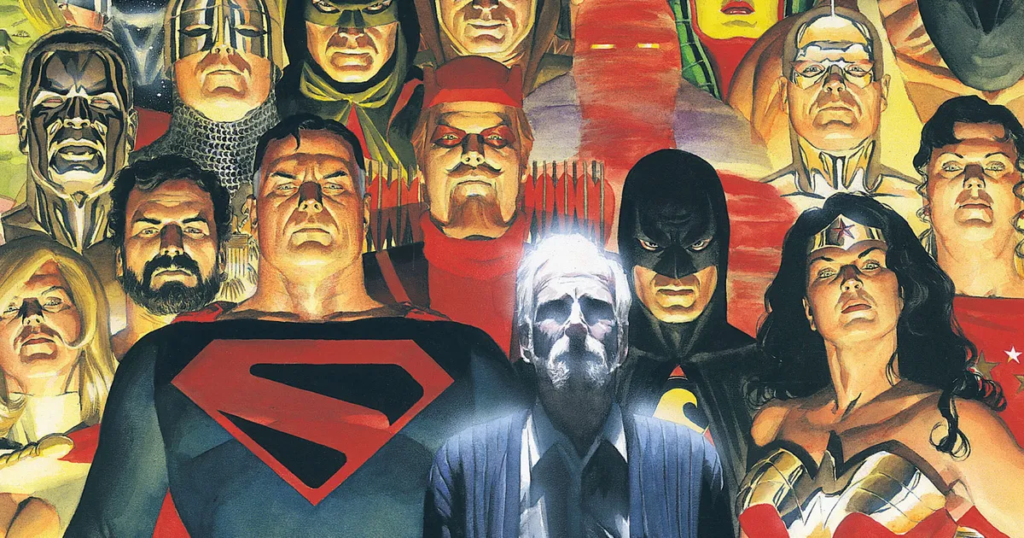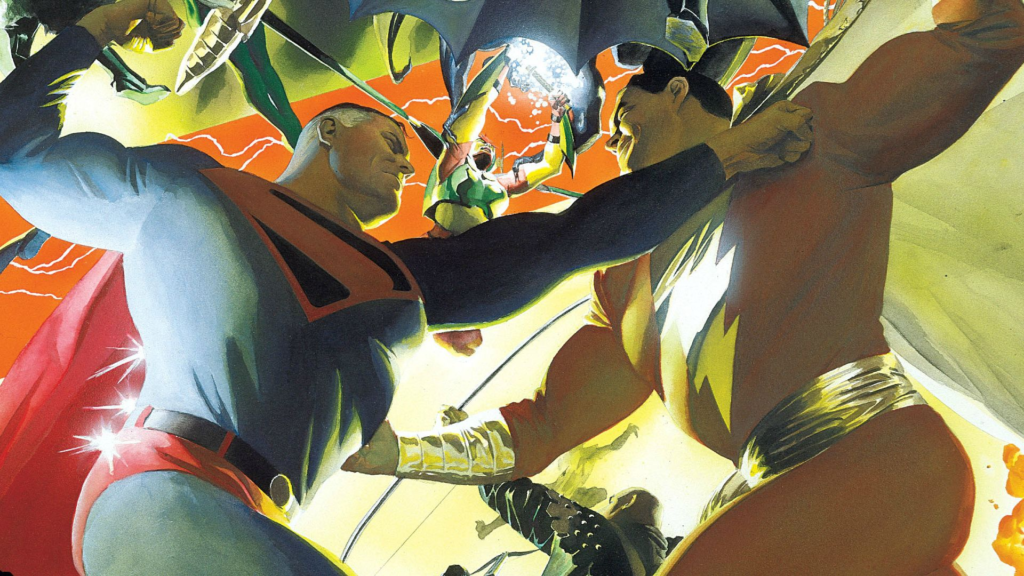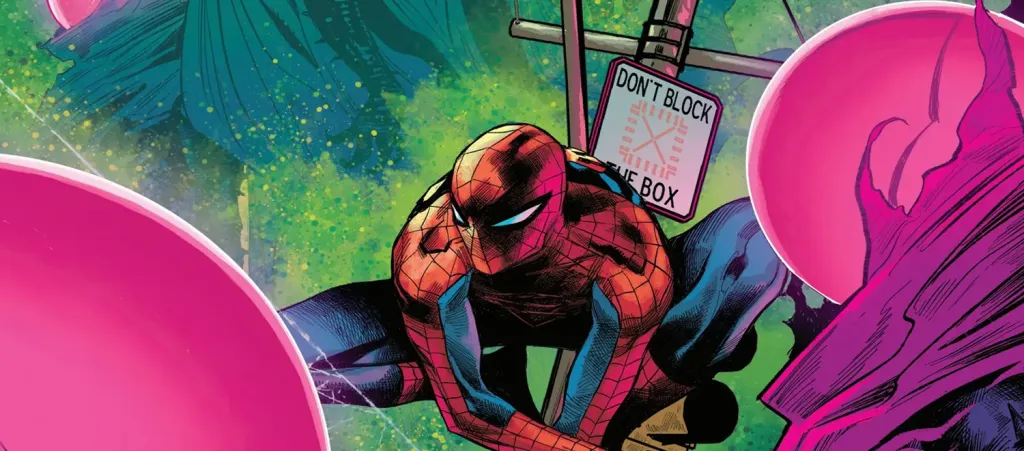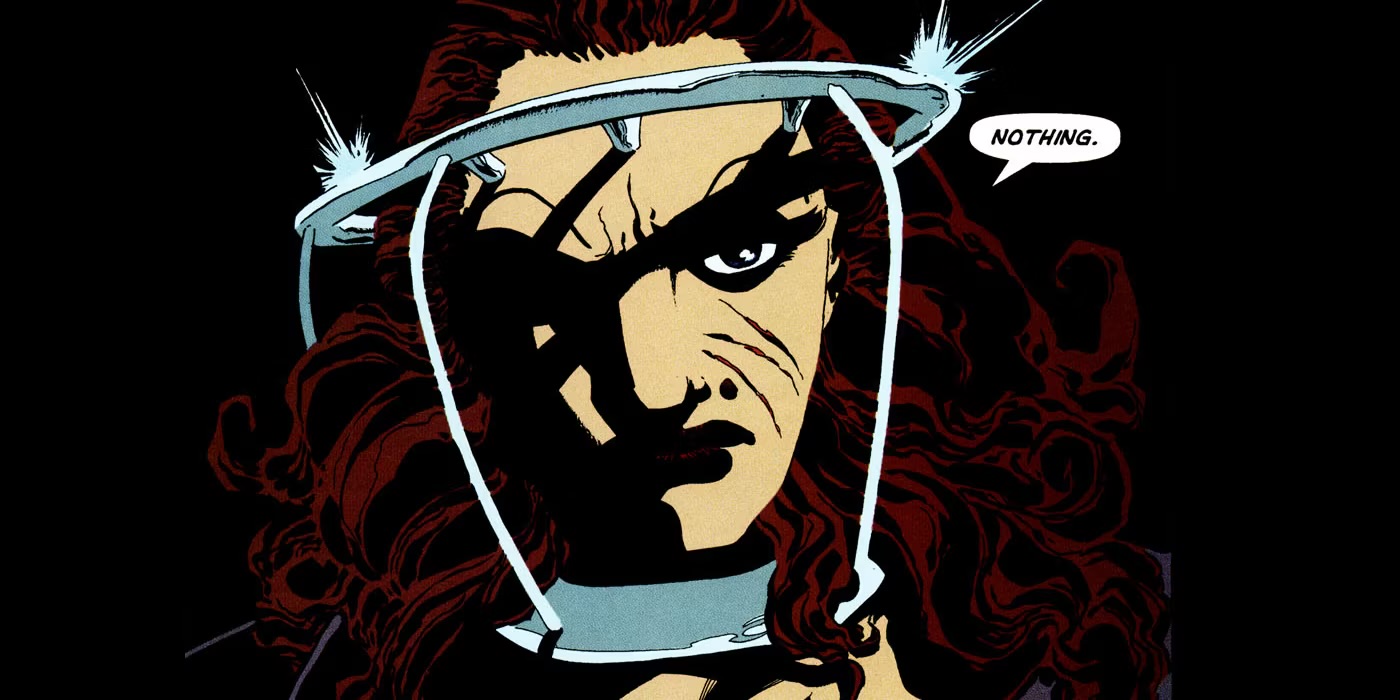Kingdom Come, a landmark graphic novel penned by Mark Waid and illustrated by Alex Ross, stands as a testament to the enduring power of storytelling within the realm of comic books. Released in 1996 under DC Comics’ Elseworlds imprint, this four-issue miniseries embarked on a narrative journey that not only redefined the superhero genre but also provided a reflective commentary on the moral dilemmas and societal concerns of its time.

At its core, Kingdom Come is a story about the clash between traditional and modern ideologies within the superhero community. Set in a dystopian future where a new generation of reckless, morally ambiguous metahumans emerges, the narrative unfolds through the lens of Norman McCay, an aged pastor chosen as a witness to the impending conflict between iconic DC characters. Waid skillfully weaves a tale that explores the consequences of unchecked power and the blurred lines between heroism and vigilantism.
One of the narrative’s strongest elements is its character development, especially the evolution of Superman. Waid paints a poignant picture of the Man of Steel, who, disillusioned by the rampant chaos caused by the new generation of metahumans, withdraws from the world. This departure leads to a power vacuum, paving the way for the rise of Magog, a symbol of unbridled aggression and the consequences of a world without Superman’s moral compass.

Alex Ross’s artwork is a visual masterpiece that elevates Kingdom Come to iconic status. Renowned for his hyper-realistic paintings, Ross brings the DC Universe to life with a level of detail and emotional depth rarely seen in comic art. His ability to capture the essence of each character, conveying their struggles and triumphs through facial expressions and body language, adds a layer of authenticity to the story. The full-page spreads and dynamic compositions serve as a visual feast, enhancing the grandiosity of the narrative.
The thematic exploration of generational conflict is another facet that distinguishes Kingdom Come. As the older generation of heroes, including Superman, Batman, and Wonder Woman, grapples with their relevance in a changing world, a new breed of metahumans embraces a more brutal and unforgiving approach to crime-fighting. This dichotomy serves as a metaphor for the shifting moral landscape of the late 20th century, reflecting societal concerns about violence, justice, and the consequences of unrestrained power.

Waid and Ross skillfully integrate philosophical and ethical debates into the narrative, prompting readers to ponder the responsibilities that come with extraordinary abilities. The superhero community becomes a microcosm of society, raising questions about the role of authority, the thin line between hero and villain, and the consequences of abandoning traditional values in favor of a more radical approach.
The thematic richness of Kingdom Come extends to its exploration of faith and redemption. Through the character of Norman McCay, the story delves into the intersection of spirituality and superheroism. McCay’s journey from skepticism to acceptance mirrors the larger narrative arc, emphasizing the potential for redemption even in the face of overwhelming despair. This spiritual dimension adds a layer of complexity to the story, transcending the conventional superhero narrative.
The intricate plot and multidimensional characters are complemented by the intricate symbolism embedded throughout the graphic novel. From biblical allusions to mythological references, Kingdom Come is a tapestry of symbolism that enriches the storytelling experience. The iconic imagery, such as Superman’s ascension in the final act, resonates on both a visual and symbolic level, leaving a lasting impression on readers.

While Kingdom Come received widespread acclaim, it was not without its critics. Some argued that the story’s dense narrative and extensive cast of characters could be overwhelming for readers unfamiliar with the DC Universe. Additionally, the deconstruction of familiar heroes and the grim portrayal of their future selves may have been jarring for fans accustomed to more optimistic portrayals of iconic characters.
In conclusion, Kingdom Come endures as a seminal work that transcends the confines of the superhero genre. Waid’s thought-provoking narrative, coupled with Ross’s breathtaking artwork, delivers a timeless exploration of morality, power, and the evolving nature of heroism. As the graphic novel approaches its third decade since publication, its impact on the comic book landscape remains undiminished, solidifying its status as a classic that continues to captivate and inspire new generations of readers.




